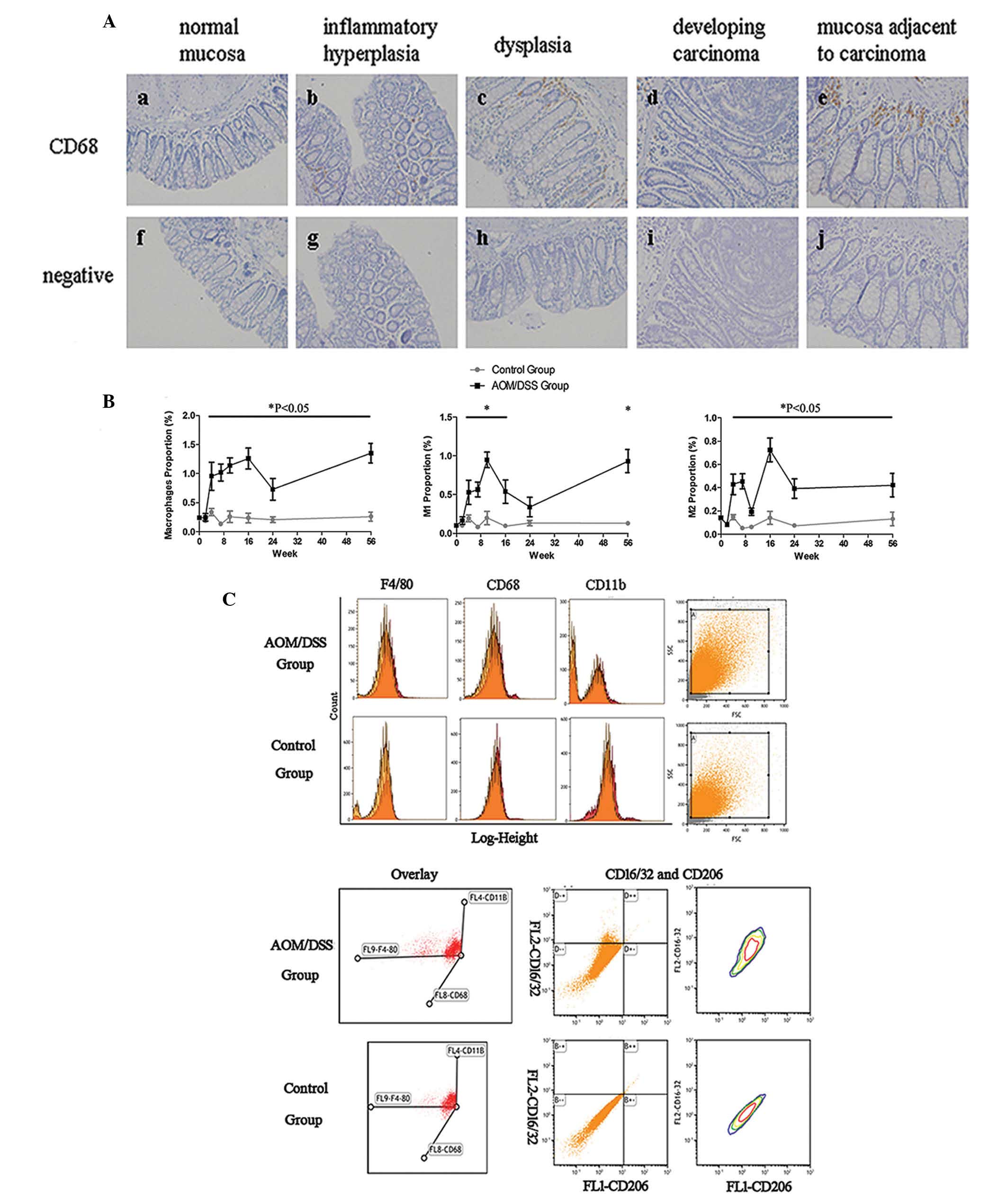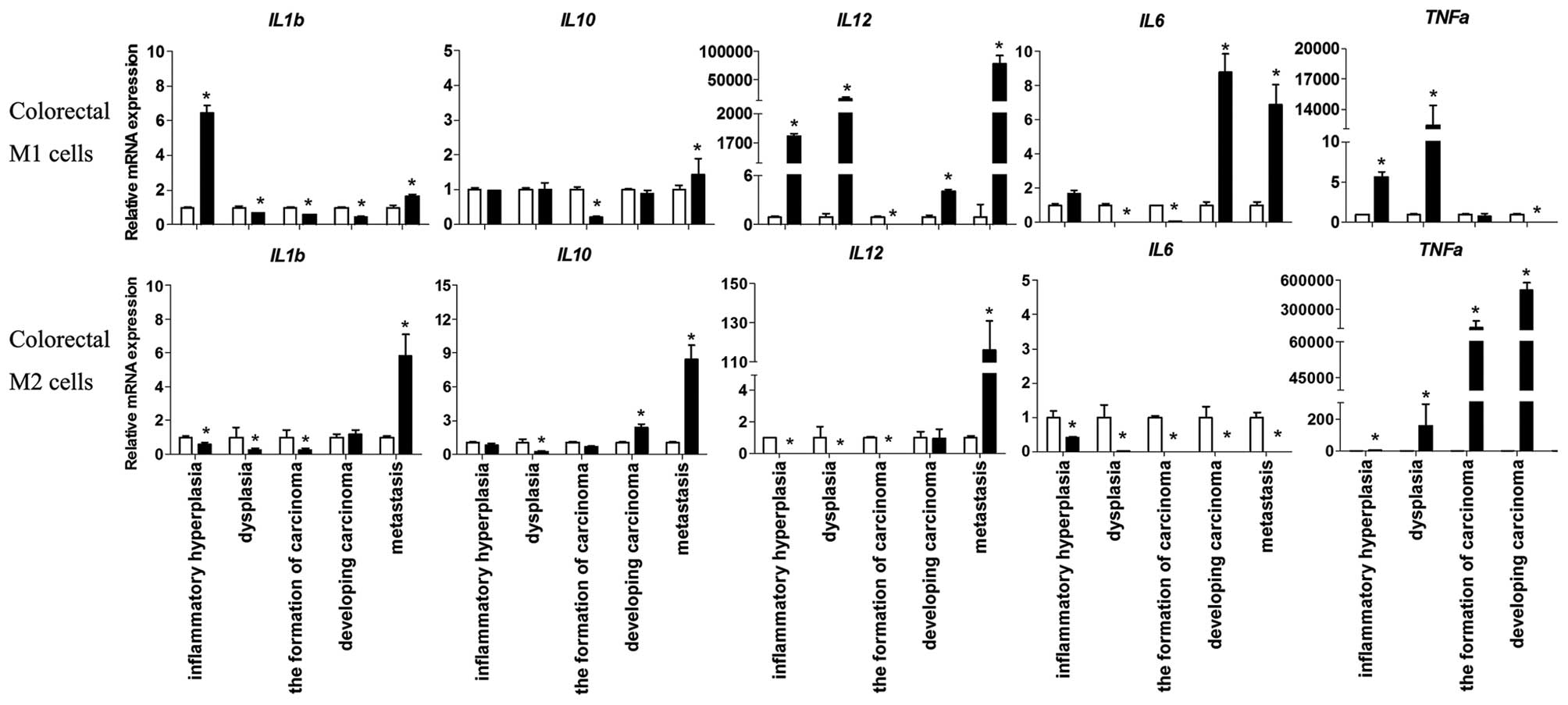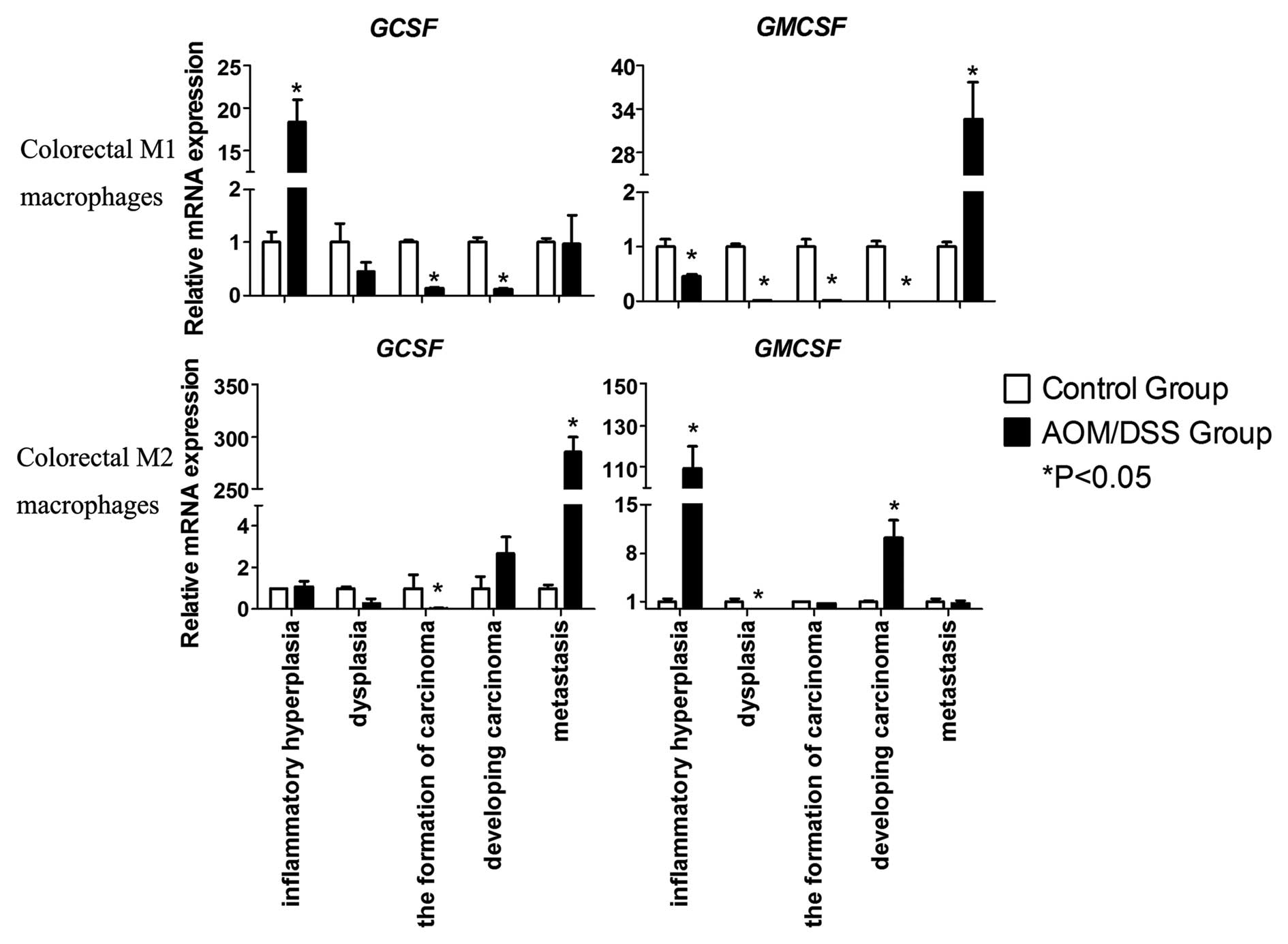|
1
|
Jemal A, Bray F, Center MM, Ferlay J, Ward
E and Forman D: Global Cancer Statistics. CA Cancer J Clin.
61:69–90. 2011. View Article : Google Scholar : PubMed/NCBI
|
|
2
|
Nathan C and Ding A: Nonresolving
inflammation. Cell. 140:871–882. 2010. View Article : Google Scholar : PubMed/NCBI
|
|
3
|
Lakatos L, Mester G, Erdelyi Z, et al:
Risk factors for ulcerative colitis-associated colorectal cancer in
a Hungarian cohort of patients with ulcerative colitis: results of
a population-based study. Inflamm Bowel Dis. 12:205–211. 2006.
View Article : Google Scholar : PubMed/NCBI
|
|
4
|
Lakatos PL and Lakatos L: Risk for
colorectal cancer in ulcerative colitis: changes, causes and
management strategies. World J Gastroenterol. 14:3937–3947. 2008.
View Article : Google Scholar : PubMed/NCBI
|
|
5
|
Gong W, Lv N, Wang B, et al: Risk of
ulcerative colitis-associated colorectal cancer in China: a
multi-center retrospective study. Dig Dis Sci. 57:503–507. 2012.
View Article : Google Scholar
|
|
6
|
Zisman TL and Rubin DT: Colorectal cancer
and dysplasia in inflammatory bowel disease. World J Gastroenterol.
14:2662–2669. 2008. View Article : Google Scholar : PubMed/NCBI
|
|
7
|
Karin M: Nuclear factor-kappaB in cancer
development and progression. Nature. 441:431–436. 2006. View Article : Google Scholar : PubMed/NCBI
|
|
8
|
Pikarsky E, Porat RM, Stein I, et al:
NF-kappaB functions as a tumour promoter in inflammation-associated
cancer. Nature. 431:461–466. 2004. View Article : Google Scholar : PubMed/NCBI
|
|
9
|
Bollrath J, Phesse TJ, von Burstin VA, et
al: gp130-mediated Stat3 activation in enterocytes regulates cell
survival and cell-cycle progression during colitis-associated
tumorigenesis. Cancer Cell. 15:91–102. 2009. View Article : Google Scholar : PubMed/NCBI
|
|
10
|
Grivennikov S, Karin E, Terzic J, et al:
IL-6 and Stat3 are required for survival of intestinal epithelial
cells and development of colitis-associated cancer. Cancer Cell.
15:103–113. 2009. View Article : Google Scholar : PubMed/NCBI
|
|
11
|
Baumgart DC and Sandborn WJ: Inflammatory
bowel disease: clinical aspects and established and evolving
therapies. Lancet. 369:1641–1657. 2007. View Article : Google Scholar : PubMed/NCBI
|
|
12
|
Mosser DM and Edwards JP: Exploring the
full spectrum of macrophage activation. Nat Rev Immunol. 8:958–969.
2008. View
Article : Google Scholar : PubMed/NCBI
|
|
13
|
Lawrence T and Natoli G: Transcriptional
regulation of macrophage polarization: enabling diversity with
identity. Nat Rev Immunol. 11:750–761. 2011. View Article : Google Scholar : PubMed/NCBI
|
|
14
|
Martinez FO, Sica A, Mantovani A and
Locati M: Macrophage activation and polarization. Front Biosci.
13:453–461. 2008. View
Article : Google Scholar
|
|
15
|
Siveen KS and Kuttan G: Role of
macrophages in tumour progression. Immunol Lett. 123:97–102. 2009.
View Article : Google Scholar : PubMed/NCBI
|
|
16
|
Xie J and Itzkowitz SH: Cancer in
inflammatory bowel disease. World J Gastroenterol. 14:378–389.
2008. View Article : Google Scholar : PubMed/NCBI
|
|
17
|
Bar-On L, Zigmond E and Jung S: Management
of gut inflammation through the manipulation of intestinal
dendritic cells and macrophages? Semin Immunol. 23:58–64. 2011.
View Article : Google Scholar : PubMed/NCBI
|
|
18
|
Sica A, Schioppa T, Mantovani A and
Allavena P: Tumor-associated macrophages are a distinct M2
polarised population promoting tumor progression: potential targets
of anti-cancer therapy. Eur J Cancer. 42:717–727. 2006. View Article : Google Scholar : PubMed/NCBI
|
|
19
|
Bailey C, Negus R, Morris A, et al:
Chemokine expression is associated with the accumulation of tumour
associated macrophages (TAMs) and progression in human colorectal
cancer. Clin Exp Metastasis. 24:121–130. 2007. View Article : Google Scholar : PubMed/NCBI
|
|
20
|
Sica A, Allavena P and Mantovani A: Cancer
related inflammation: the macrophage connection. Cancer Lett.
267:204–215. 2008. View Article : Google Scholar : PubMed/NCBI
|
|
21
|
Green CE, Liu T, Montel V, et al:
Chemoattractant signaling between tumor cells and macrophages
regulated cancer cell migration, metastasis and neovascularization.
PLoS One. 4:e67132009. View Article : Google Scholar
|
|
22
|
Wirtz S, Neufert C, Weigmann B and Neurath
MF: Chemically induced mouse models of intestinal inflammation. Nat
Protoc. 2:541–546. 2007. View Article : Google Scholar : PubMed/NCBI
|
|
23
|
Clapper ML, Cooper HS and Chang WC:
Dextran sulfate sodium-induced colitis-associated neoplasia: a
promising model for the development of chemopreventive
interventions. Acta Pharmacol Sin. 28:1450–1459. 2007. View Article : Google Scholar : PubMed/NCBI
|
|
24
|
Lai CS, Tsai ML, Cheng AC, et al:
Chemoprevention of colonic tumorigenesis by dietary hydroxylated
polymethoxyflavones in azoxymethane-treated mice. Mol Nutr Food
Res. 55:278–290. 2011. View Article : Google Scholar
|
|
25
|
Cooper HS, Murthy SN, Shah RS and
Sedergran DJ: Clinicopathologic study of dextran sulfate sodium
experimental murine colitis. Lab Invest. 69:238–249.
1993.PubMed/NCBI
|
|
26
|
Forssell J, Oberg A, Henriksson ML,
Stenling R, Jung A and Palmqvist R: High macrophage infiltration
along the tumor front correlates with improved survival in colon
cancer. Clin Cancer Res. 13:1472–1479. 2007. View Article : Google Scholar : PubMed/NCBI
|
|
27
|
Mantovani A, Sica A and Locati M:
Macrophage polarization comes of age. Immunity. 23:344–346. 2005.
View Article : Google Scholar : PubMed/NCBI
|
|
28
|
Mantovani A: Inflammation and cancer: the
macrophage connection. Medicina. 67:32–34. 2007.
|
|
29
|
Mantovani A: Tumor-associated macrophages
in cancer-related inflammation. Immunotherapy. 3:21–22. 2011.
View Article : Google Scholar
|
|
30
|
Ong SM, Tan YC, Beretta O, et al:
Macrophages in human colorectal cancer are pro-inflammatory and
prime T cells towards an anti-tumour type-1 inflammatory response.
Eur J Immunol. 42:89–100. 2012. View Article : Google Scholar
|
|
31
|
Condeelis J and Pollard JW: Macrophages:
obligate partners for tumor cell migration, invasion, and
metastasis. Cell. 124:263–266. 2006. View Article : Google Scholar : PubMed/NCBI
|
|
32
|
Zhou Q, Peng RQ, Wu XJ, et al: The density
of macrophages in the invasive front is inversely correlated to
liver metastasis in colon cancer. J Transl Med. 8:132010.
View Article : Google Scholar : PubMed/NCBI
|
|
33
|
Solinas G, Germano G, Mantovani A and
Allavena P: Tumor-associated macrophages (TAM) as major players of
the cancer-related inflammation. J Leukoc Biol. 86:1065–1073. 2009.
View Article : Google Scholar : PubMed/NCBI
|
|
34
|
Imtiyaz HZ, Williams EP, Hickey MM, et al:
Hypoxia-inducible factor 2alpha regulates macrophage function in
mouse models of acute and tumor inflammation. J Clin Invest.
120:2699–2714. 2010. View
Article : Google Scholar : PubMed/NCBI
|
|
35
|
Low-Marchelli JM, Ardi VC, Vizcarra EA,
van Rooijen N, Quigley JP and Yang J: Twist1 induces CCL2 and
recruits macrophages to promote angiogenesis. Cancer Res.
73:662–671. 2013. View Article : Google Scholar : PubMed/NCBI
|




















